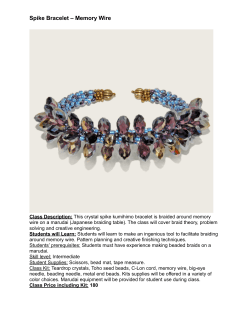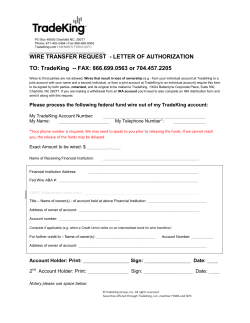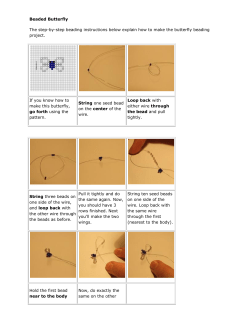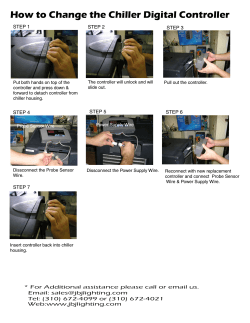
How to Insert “ Cook ”
How to Insert “Cook” Seldinger Chest drains Elizabeth Pilling Consultant Neonatologist Jessop Wing, Sheffield Contents Equipment required Analgesia Identify location Insert needle introducer Advance guidewire Dilate skin Insert drain Secure How to remove Acknowledgements Equipment required Introducer needle Syringe Dilator Guidewire Chest drain 3 way tap Connector Extension Flutter valve Step One- analgesia Ensure the baby has adequate analgesia Consider using morphine bolus if ventilated, or if not, low dose fentanyl (watch for chest wall rigidity), lignocaine locally. Step two-aseptic technique Use sterile gloves and gown Identify site for insertion Clean the skin using chlorhexadine Step 3- Insert needle Select the location for the chest drain Usually 5th intercostal space, anterior axillary line Insert the needle whilst aspirating syringe Stop advancing once air aspirated (less than 1cm) Step 4- Insert wire Pass the wire through the needle as far as the mark on the wire Mark on wire Holding the wire still, remove the needle NB take care to keep the equipment sterile at all timesthis may require an assistant to “control” the wire. Step 5- dilate the skin Pass the dilator along the wire Push the dilator through the skin about 1cm, angling anteriorly The skin may require a small incision Following dilation, the dilator can be removed NB at all times the wire must be held still, not advanced or withdrawn Step 6- insert the drain The drain should be advanced over the wire (this often needs an assistant) The drain should be advanced through the skin so the holes are inside the baby The wire can now be removed Step 7- add the flutter valve Assemble drainage equipment Extension 3 way tap Connector Flutter valve (ensure correct orientation) The valve/underwater drain now needs to be attached to the end of the drain Step 8- Secure the drain The drain should be carefully secured DO NOT use a purse string suture- it leaves an ugly scar A suture can be placed through the skin and knotted to the drain The drain can them be secured with a tegaderm securely How to remove Wear personal protective equipment ie gloves, eye protection Remove sutures tegaderm Gently pull the drain- the pigtail will uncurl Beware of splashing body fluids- as the drain comes out of the skin, the pigtail will spring back Acknowledgements Dr R Ranganna for photography
© Copyright 2025





















